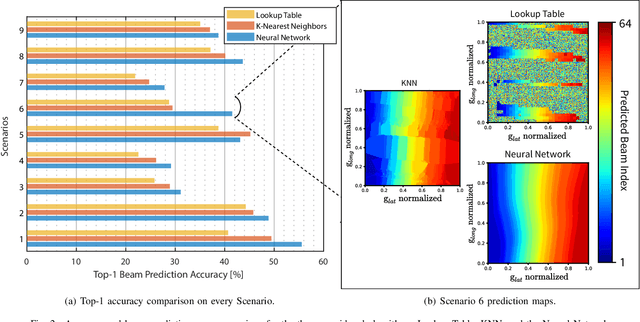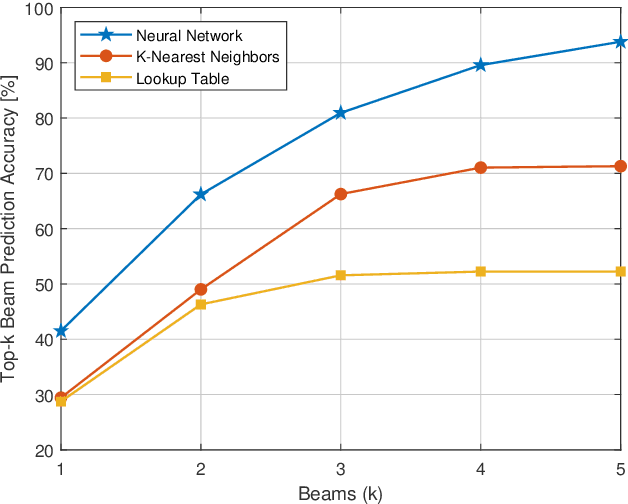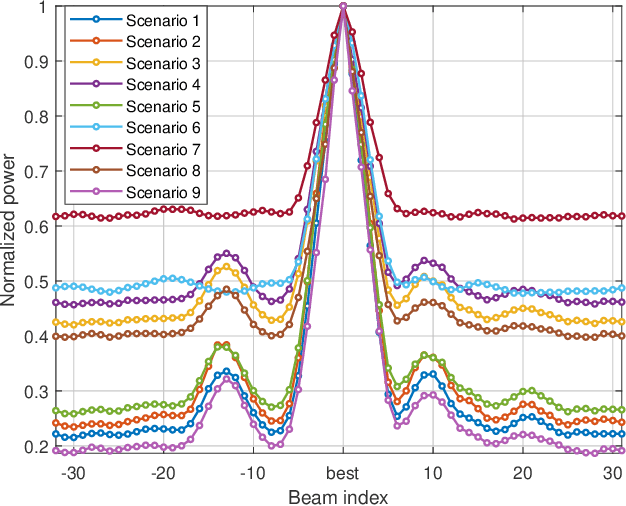Position Aided Beam Prediction in the Real World: How Useful GPS Locations Actually Are?
Paper and Code
May 23, 2022



Millimeter-wave (mmWave) communication systems rely on narrow beams for achieving sufficient receive signal power. Adjusting these beams is typically associated with large training overhead, which becomes particularly critical for highly-mobile applications. Intuitively, since optimal beam selection can benefit from the knowledge of the positions of communication terminals, there has been increasing interest in leveraging position data to reduce the overhead in mmWave beam prediction. Prior work, however, studied this problem using only synthetic data that generally does not accurately represent real-world measurements. In this paper, we investigate position-aided beam prediction using a real-world large-scale dataset to derive insights into precisely how much overhead can be saved in practice. Furthermore, we analyze which machine learning algorithms perform best, what factors degrade inference performance in real data, and which machine learning metrics are more meaningful in capturing the actual communication system performance.
 Add to Chrome
Add to Chrome Add to Firefox
Add to Firefox Add to Edge
Add to Edge